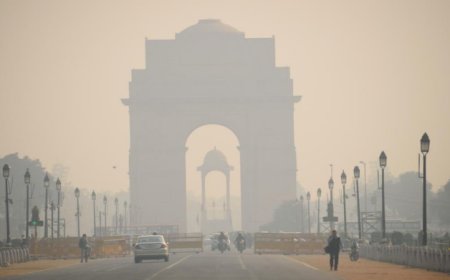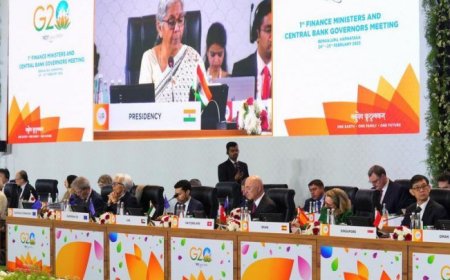Travel and Wellness: A renewed interest in wellness travel has been observed, with more travelers seeking destinations that offer relaxation and health-focused activities.
Travel and Wellness: A renewed interest in wellness travel has been observed, with more travelers seeking destinations that offer relaxation and health-focused activities.

Travel industry is experiencing a significant shift, as more people are prioritizing wellness and self-care while planning their getaways.
This renewed interest in wellness travel is reshaping the way vacations are perceived, moving away from traditional sightseeing and adventure tourism towards destinations and experiences that focus on relaxation, health, and mindfulness. In a fast-paced, often stressful world, travelers are seeking escapes that offer more than just a change of scenery—they are searching for places that provide an opportunity to rejuvenate both mind and body. This shift is a reflection of a broader cultural movement towards well-being, self-care, and a more mindful approach to life.
The trend towards wellness travel isn't entirely new, but it has gained substantial momentum in recent years. People have become more conscious of the importance of mental and physical health, and they are looking for vacations that support their well-being rather than detract from it. Instead of returning from a holiday feeling exhausted or overwhelmed by hectic schedules and endless activities, travelers now seek to come back feeling refreshed, healthier, and more centered. This has led to a surge in interest in destinations that offer health-focused activities, spa retreats, mindfulness workshops, and fitness programs.
The concept of wellness travel is broad and encompasses a variety of experiences. For some, it might mean booking a stay at a luxury resort with a world-class spa, yoga sessions, and gourmet healthy cuisine. For others, wellness travel involves immersing themselves in nature, spending time in a secluded cabin, practicing meditation by the sea, or hiking through scenic landscapes. This diversity in what wellness travel can look like reflects the individual nature of well-being—what relaxes and rejuvenates one person might not have the same effect on another. As a result, the industry is catering to a wide range of preferences, from the tranquil and meditative to the physically invigorating.
One of the driving forces behind the surge in wellness travel is a desire to disconnect from the demands of daily life and the constant barrage of digital information. In an era of smartphones and constant connectivity, travelers are finding it increasingly important to take breaks from screens and social media. Many wellness retreats emphasize the importance of digital detoxing, encouraging guests to leave their devices behind and fully engage with their surroundings. This trend is not only about reducing stress but also about fostering a deeper sense of presence and mindfulness—qualities that many feel are lost in the hustle of everyday life.
Yoga retreats, meditation workshops, and mindfulness training have become staples in the wellness travel scene. Destinations known for their natural beauty, such as Bali, Costa Rica, Thailand, and India, have seen an influx of travelers seeking to participate in yoga teacher training courses or meditation retreats. These experiences offer not just relaxation but also the opportunity to learn skills that can be integrated into daily life. Many participants see these trips as a chance to invest in personal development, learning techniques to manage stress and improve their overall sense of well-being. This focus on education and growth adds a deeper dimension to wellness travel, making it about more than just temporary relaxation.
The wellness travel trend has also given rise to a new emphasis on healthy eating and nutrition during vacations. Many resorts and hotels are responding by offering menus that feature locally sourced, organic, and plant-based foods. Cooking classes focused on healthy cuisine are becoming popular, allowing travelers to take home new skills and knowledge about nourishing their bodies. This interest in food goes beyond just diet; it's about understanding the connection between what we eat and how we feel, making conscious choices that support a balanced and healthy lifestyle. This shift has been particularly appealing to travelers who are health-conscious or have specific dietary needs, as they can now enjoy vacations without compromising on their nutritional goals.
Fitness and physical activity have become central components of many wellness vacations. Instead of viewing exercise as a chore, travelers are seeking fun and engaging ways to stay active while on holiday. This can range from guided hikes, beach workouts, and paddleboarding to more specialized activities like stand-up paddle yoga, mountain biking, or even surf camps. The appeal of being active in stunning natural environments makes fitness feel like a joyful experience rather than a routine obligation. This focus on outdoor activities not only supports physical health but also enhances mental well-being, as time spent in nature has been shown to reduce stress and improve mood.














































